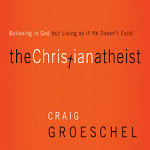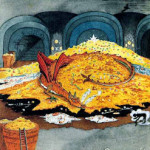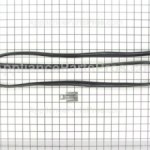As we continue on the journey towards simplicity, I am now asking myself a question. How did I end up with so much stuff?! The answer is simple. Since the only things at my home that multiply on their own are dust and weeds, everything else I either purchased or someone gave me. This post will focus on obtaining things for ourselves, and the next will reflect on gift giving.
 |
| In good architecture and interior design, simple does not mean boring. |
Two recent articles brought the idea of the shear number of possessions we hold to the forefront of my mind: “3 Lessons from a Guy with 39 Possessions” by David Friedlander and the follow-up article “You Probably Have Too Much Stuff” by Carl Richards. Both of these secular articles focus on the life of Andrew Hyde, a successful entrepreneur and graphic designer, who owns only 39 possessions (up from 15). With his few possessions, Hyde has a rich life. He travels the world, and I would imagine the money he has not used on possessions has given him a comfortable savings account. Admittedly a minimalist, his three life lessons are still valuable for everyone.
1. Fewer choices are freeing. Asked which shirt Hyde picks in the morning, he replies, “The clean one.” How much time and mental effort do you spend choosing what shoes to wear, what movie to watch, what dish to cook? Choice is not necessarily a bad thing, but it is often overvalued, especially related to things that aren’t aligned with what’s really important in our lives–things like relationships, health and recreation.
2. If you have fewer things, make them good. As Sarah Laskow wrote in Grist, living light doesn’t mean living cheap. Hyde’s possessions are all very high quality. Paring down means choosing stuff that holds up and looks good. If you have 3 shirts, you can’t afford to have that one shirt that doesn’t fit right.
3. Sometimes you will not be prepared…and it’s okay. You likely won’t trim your possessions to Hyde-ian proportions, but that doesn’t mean you have to everything for every occasion. Americans in particular like to be prepared for the worst-case-scenario, having separate cookie cutters for Christmas and Halloween. We seldom consider how negligible the consequences are when we run out of something or are unprepared. Nor do we consider how high the consequences are for being over-prepared: creating more money, space, upkeep and mental clutter.
I think all three of his lessons are good, and I especially resonate with the first two. However, in addressing obtaining items for ourselves, I would like to focus on #3. I think we do tend to define needful things as being prepared for anything, when that is not necessarily true. Here are two cases.
 |
| “Baby, you can drive my car!” |
- When I go backpacking, I carry a snake bite kit. I do not actually need a snake bite kit unless someone gets bit by a poisonous snake and I am nowhere near transportation or the ranger station. In this case, death or injury could occur, so it is probably better to be prepared and carry the extra few ounces of weight, but there is a cost to carrying more weight. It is much like keeping a fire extinguisher in the kitchen.
- Let us imagine a benefactor giving me unlimited funds to fully supply me with bass guitars. I already own a 4-string Ibanez electric bass and a 5-string Dean acoustic. I could add to that: a 5-string electric Fender, a 4-string acoustic (I wouldn’t be picky on the brand of this one), a fretless bass, an upright bass, an Ovation guitar for those times when the band does not need a bass player (Who am I trying to kid? Every band always needs a bass player!), and a Hofner Violin Bass with a leather strap (just like Sir Paul McCartney) for those Sundays and special events when I want to look retro. (BTW – I almost bought the Hofner.) This may sound absurd to some people, but I have never known a guitar player that did not collect guitars. We may not all be musicians, but we all have those items which we tend to amass in order to be prepared for every contingency. Christmas dishes? More than one coat? Multiple televisions? How many towels are in your linen closet?
The books of the New Testament do not indicate that Jesus carried around carpenter’s tools, just in case the whole Savior of the world thing did not work out. Jesus did not have money on hand to pay the temple tax (Matthew 17:24-27) nor did he own a home (Matthew 8:20). His disciples left their fishing nets (Matthew 4:20), actually, they left everything (Matthew 19:27), to follow Jesus.
Some people tend to seek security and others freedom, but in either direction accumulation of possessions is not the way to find either security or freedom. If I purchase a home, I am secure, until I lose my job. If I purchase a home I am free to minister to more people, except in another geography. I am not saying a house is not needful, but ownership may not be, and there are many other items we pick up here and there that are much less important than a house. Job lost everything (Job 1-2), and in the end he found the one thing he really needed was to really know his God (Job 42:1-6).
The posts in this series are:
- Simplicity with Media
- Working Towards Simplicity
- Simply Relax
- Needful Things
- Gift Giving
- The Simple Life
©2012 Paul Tillman






